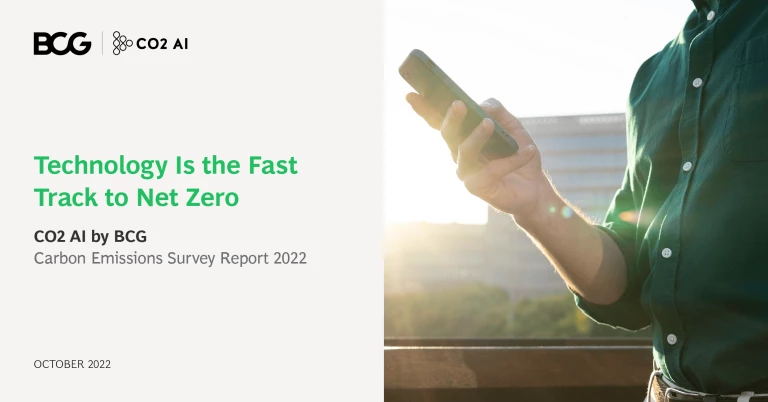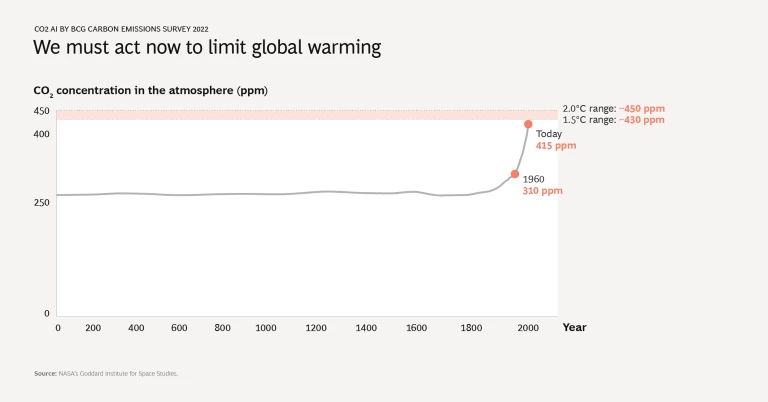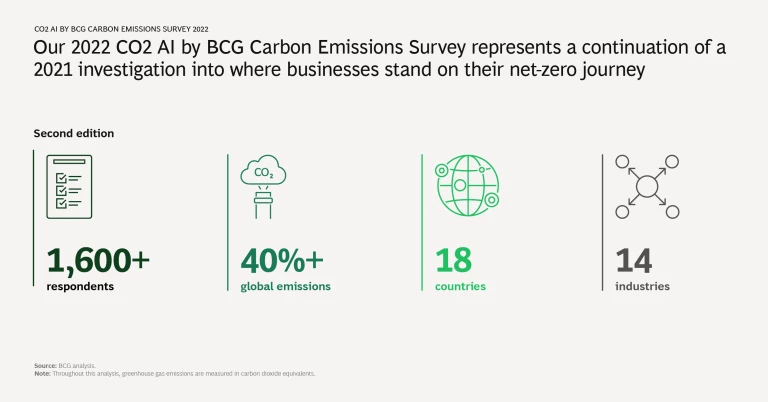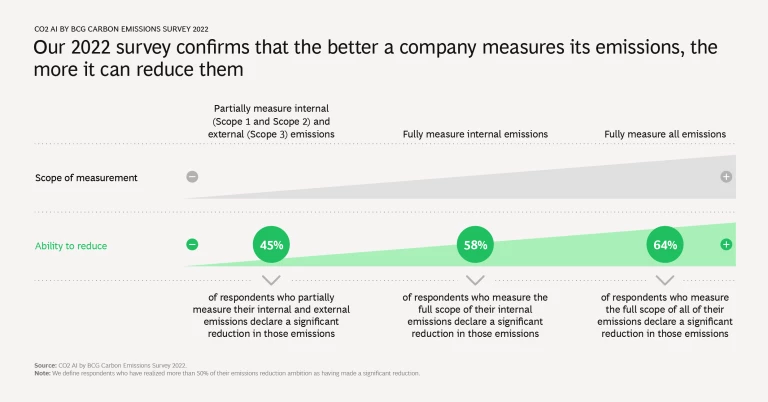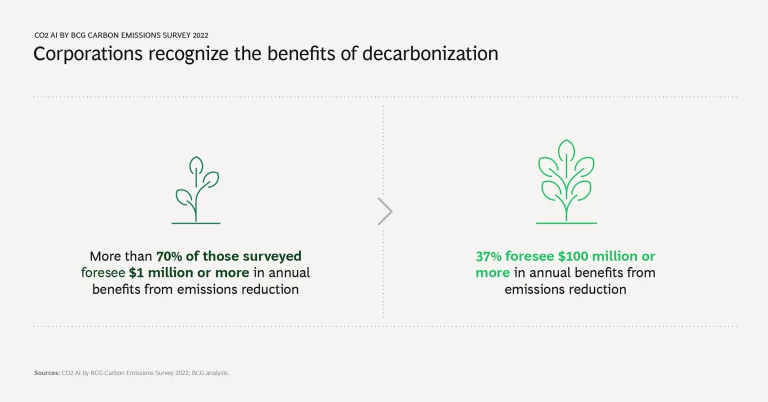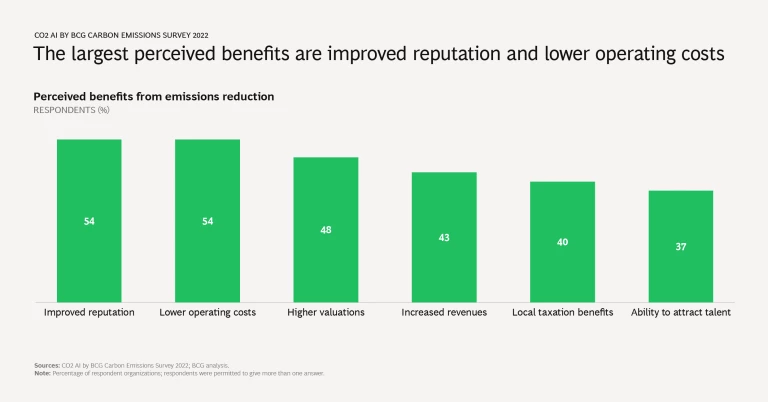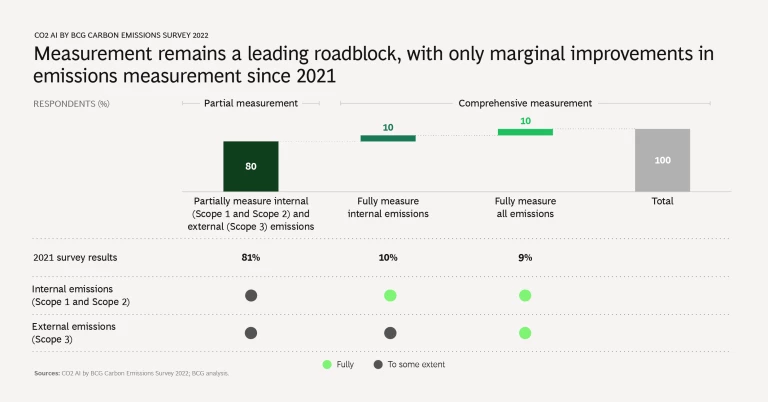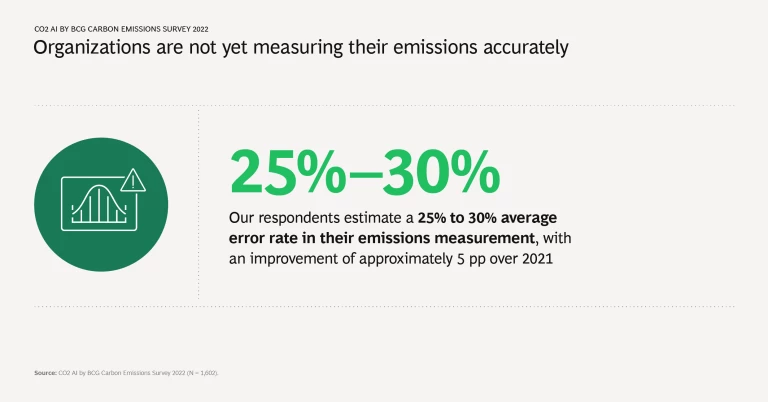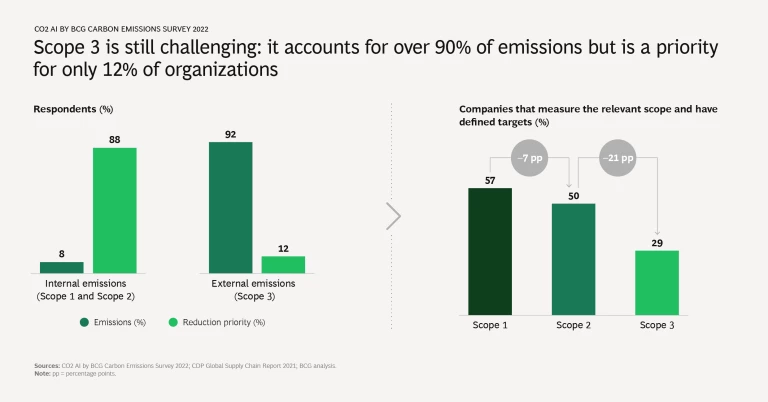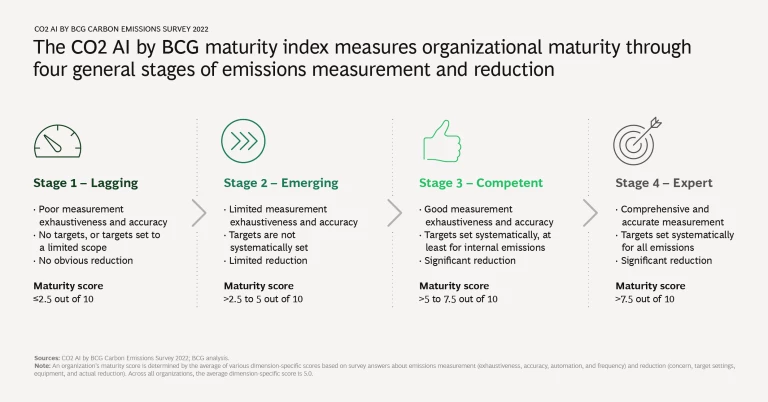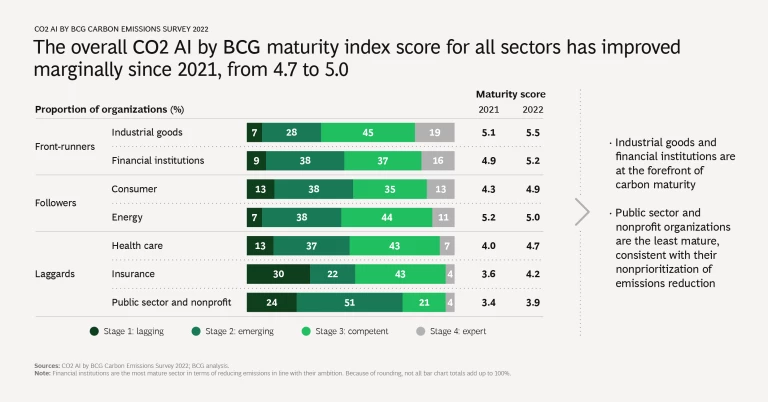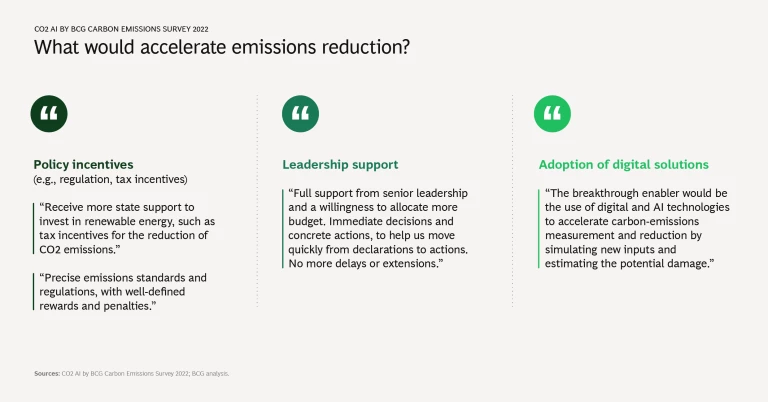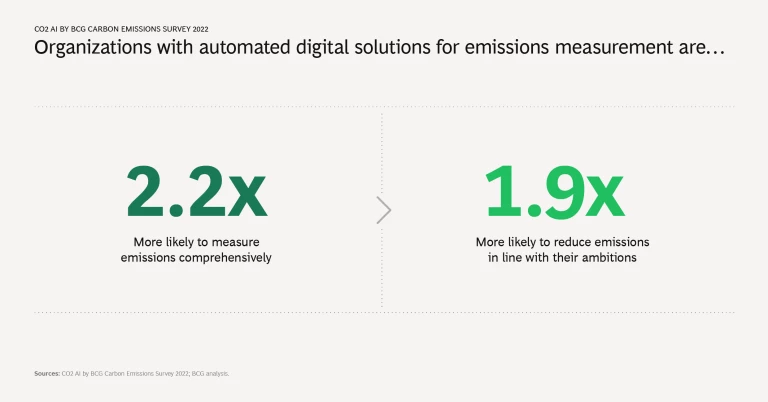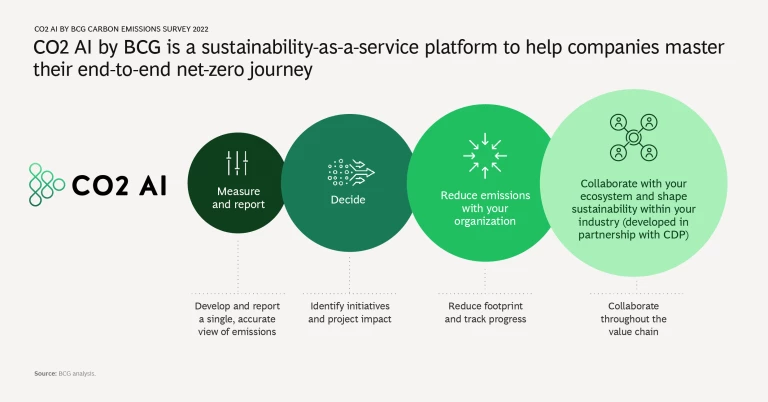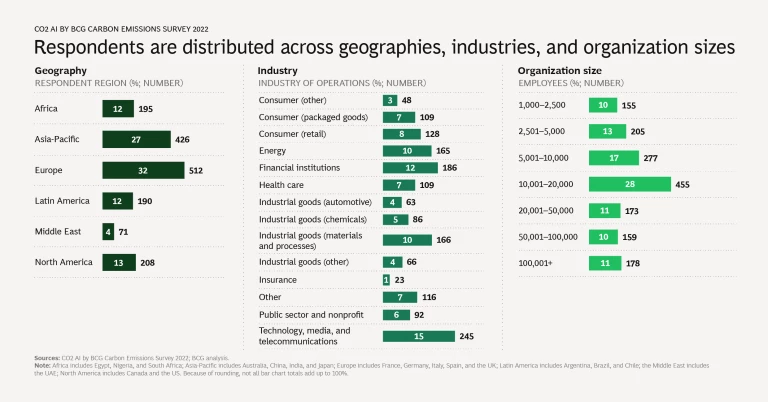Our 2022 CO2 AI by BCG Carbon Emissions Survey continues a 2021 investigation into the progress that organizations around the world have made in measuring and reducing their carbon emissions.
The call for climate action is urgent, and our findings reveal that organizations recognize the need to reduce their emissions—to benefit both the planet and their own business. Although they have made some headway over the past year, however, overall progress across industries and regions has been slow; most companies still have a long road ahead before reaching their net-zero goals. In addition, the inability to measure emissions accurately and comprehensively—in particular for external (Scope 3) emissions—remains a major roadblock. (See “Our Methodology.”)
Our Methodology
Our Methodology
We wanted to find out how these businesses were measuring and reducing their greenhouse gas emissions, and our questions addressed three key themes: the methodology, scope, and challenges of emissions measurement; the perceived risks and benefits of such measurement; and potential accelerators for carbon management.
To accelerate their progress, organizations need to invest in digital tools that support their employees, helping them achieve more accurate and comprehensive emissions measurements and greater emissions reduction. Survey respondents also say that they need more support from leadership and better policy incentives if they are to improve their emissions measurements and reduction.
Stay ahead with BCG insights on climate change and sustainability
Tremendous Benefits
In terms of monetary value, over 70% of organizations foresee at least $1 million dollars in annual benefits from emissions reduction—which in most cases covers the incremental costs of putting the relevant digital tools in place—and 37% anticipate annual benefits of $100 million or more. Businesses report many other benefits as well. Notably, 54% of organizations identify an improved reputation as a key benefit of emissions reduction, and 37% list the ability to attract top talent. (See the slideshow.)
A Long Road Ahead
According to our research, businesses that measure their emissions comprehensively are more likely to reduce them. Nonetheless, our second annual survey reveals that many organizations still fail to measure their Scope 1, Scope 2, and Scope 3 emissions, with just 10% saying that they do so, compared to 9% in 2021. In addition, respondents estimate that their emissions measurements are subject to an average error rate of 25% to 30%. And although 92% of all emissions are Scope 3, according to the Carbon Disclosure Project (CDP), just 12% of organizations surveyed consider Scope 3 their top priority.
Perhaps not surprisingly, the average CO2 AI by BCG maturity index for those surveyed—gauged on the basis of their answers about emissions measurement and reduction—improved only marginally in this year’s survey over the previous year’s, from 4.7 to 5.0. Overall, industrial goods businesses and financial institutions outperformed companies in other sectors, while public sector and nonprofit organizations lagged behind.
Overcoming Roadblocks Through Automation
To improve the accuracy of their emissions measurements, businesses need to invest in digital solutions, such as CO2 AI by BCG, that can rigorously measure, track, and reduce their environmental footprint at scale. Such automated digital solutions pull data from sources across the business, promoting transparency and providing a single source of truth. They can support informed decision making, automate CO2 emissions reporting, and design a roadmap for emissions reduction going forward.
Our survey finds that organizations that have adopted automated digital solutions for emissions measurement are 2.2 times as likely as their peers to measure their emissions comprehensively and 1.9 times as likely to reduce emissions in line with their ambitions. (See “CO2 AI by BCG Case Study.”)
CO2 AI by BCG Case Study
CO2 AI by BCG Case Study
Using CO2 AI by BCG, the business met these challenges. It created a single source of truth for all emissions data, calculated in a highly detailed way. It also integrated the platform with its business systems and other customized digital tools so that the platform could support collaboration on emissions reduction along the value chain by providing reports to the business’s ecosystem partners.
As a result, the business expects to reduce its overall operating emissions 25% by 2030. In addition, it has positioned emissions competitiveness as part of its overall value proposition, allowing it to win business from new clients.

